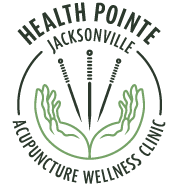Hey new momma! Congratulations on your new baby and welcome to motherhood. Whether this is your first, third, or sixth child, breastfeeding can be tricky. Breastfeeding is a beautiful and natural process that fosters a unique bond between mother and child. However, it can also come with its challenges. From latching issues to low milk supply, many mothers encounter obstacles along their breastfeeding journey. Fortunately, there are various ways to enhance and support breastfeeding through nutrition, lifestyle adjustments, and seeking professional guidance when needed.
Nutrition and Breastfeeding:
Nutrition plays a crucial role in supporting lactation and ensuring both mom and baby receive the essential nutrients they need. Incorporating certain foods and/or teas into your diet can promote milk production and overall well-being.
-
Bone Broth:
Bone broth is a nutrient-rich elixir that provides essential minerals such as calcium, magnesium, and phosphorus, which are vital for bone health and milk production. Additionally, bone broth contains collagen, which supports tissue repair and can aid in postpartum recovery. Consuming a warm cup of bone broth daily can replenish the body’s nutrient stores and promote optimal breastfeeding.
-
Congee Recipes:
Congee, a traditional Asian rice porridge, is not only comforting but also highly nutritious. By incorporating ingredients such as lean proteins, leafy greens, and healing herbs like ginger and garlic, congee becomes a powerhouse of nutrients for lactating mothers. The gentle, easy-to-digest nature of congee makes it an ideal meal for postpartum recovery and supporting milk supply.
-
Fenugreek Tea:
Fenugreek is an herb commonly used to promote lactation. Fenugreek seeds contain compounds that mimic estrogen and can stimulate milk production in breastfeeding mothers. Brewing fenugreek tea and incorporating it into your daily routine can help boost milk supply naturally. However, it’s essential to consult with a healthcare provider before using fenugreek, especially for those with certain medical conditions or taking medications.
-
Mother’s Milk Tea:
Inspired by a Traditional European Medicine combination passed through generations of women, our time-tested formula uses fennel, anise, coriander, fenugreek, and blessed thistle to help promote lactation. You can find mother’s milk tea at many drugstores and grocery stores, but remember that the tea is meant for boosting your supply, not for maintaining it. Once your milk is at a level that suits you and baby, you can give the herbal remedy a rest
-
Increase Water Intake:
Staying hydrated is essential for milk production! When you’re breastfeeding, you are hydrating your little one and yourself. Breast milk is about 90% water, so it’s key to know how much water to drink while breastfeeding. Experts recommend drinking about 128 ounces (or 16 cups) of water per day while breastfeeding. Nursing mamas should aim to drink plenty of water throughout the day to maintain optimal hydration levels. Rather than focusing on meeting a goal of a set number of ounces, the key is to make sure you don’t become dehydrated. Keeping a water bottle nearby and sipping water regularly can help ensure adequate fluid intake
-
Dark Beer:
Moderate consumption of dark beer has been suggested to help increase milk supply. Dark beers contain brewer’s yeast, a rich source of B vitamins and micronutrients that may support lactation. However, it’s important to emphasize moderation and consult with a healthcare provider before incorporating alcohol into your breastfeeding routine.
-
Alfalfa Sprouts:
Alfalfa has a long history in breastfeeding health. Breastfeeding parents have been using alfalfa to support lactation for ages. It contains phytoestrogens or plant components that resemble estrogens and can attach to their receptors, and is anecdotally thought to increase milk supply. The best way to benefit from alfalfa is by adding it to your diet naturally. Alfalfa sprouts and seeds taste similar to peas, and you can add them to salads, wraps, sandwiches and even soups.
*Caution note: Even though alfalfa is an herb that has been used as a medicine for many years, it’s important to remember that herbs can have side effects and interactions and are not right or safe for everyone. Always discuss the use of herbal medicines with your health care provider before taking them.
- Alfalfa can cause diarrhea in both the nursing parent and the baby, caution on high dose
- If you have an overabundant breast milk supply or do not need to increase your milk supply, alfalfa could increase your supply too much, leading to painful breast issues such as breast engorgement and mastitis.
- Alfalfa, like other green leafy vegetables, contains vitamin K which can interfere with anticoagulant medication. Talk to your doctor if you’re taking a blood thinner such as warfarin (Coumadin).
- Alfalfa can trigger auto-immune disorders or make them worse. Do not use this herb if you suffer from systemic lupus erythematosus (SLE) or other auto-immune conditions without discussing it with your doctor. In addition, do not use alfalfa if you are immune-compromised.
Lifestyle Adjustments:
In addition to nutrition, certain lifestyle adjustments can further support breastfeeding success.
-
Acupuncture for Breastfeeding:
When it comes to breastfeeding, acupuncture and herbal formulas can offer several benefits:
- Increasing Milk Supply: Acupuncture can help stimulate milk production by balancing hormone levels and improving blood flow to the breasts. Targeting specific acupuncture points related to lactation can enhance milk supply naturally.
- Relieving Engorgement and Pain: Engorgement, a common issue for breastfeeding mothers, can cause discomfort and interfere with milk flow. Acupuncture can help alleviate engorgement by promoting lymphatic drainage and reducing inflammation, leading to relief from pain and swelling.
- Managing Stress and Anxiety: Stress and anxiety can negatively impact milk production and breastfeeding success. Acupuncture has been shown to regulate the body’s stress response, promote relaxation, and improve mood, thereby creating a conducive environment for breastfeeding.
- Balancing hormones in postpartum period: Hormonal fluctuations are a natural part of the postpartum experience as the body adjusts to the changes following childbirth. However, imbalances in hormone levels can contribute to symptoms such as mood swings, fatigue, and difficulty with milk production. Acupuncture works by stimulating specific points on the body to regulate and restore balance to the body’s systems, including hormone production and regulation.
-
Rule Out Tongue Tie:
Tongue tie, a condition where the frenulum restricts the movement of the tongue, can hinder a baby’s ability to latch and breastfeed effectively. It’s crucial for healthcare providers to assess infants for tongue tie early on, as correcting this condition can significantly improve breastfeeding outcomes.
-
Consult a Lactation Specialist:
If you’re experiencing difficulties with breastfeeding, seeking support from a lactation specialist can be invaluable. These trained professionals can provide guidance on proper latching techniques, address any concerns or challenges you may have, and offer personalized support to help you and your baby thrive.
Breastfeeding is a journey filled with love, nourishment, and connection. By prioritizing nutrition, making lifestyle adjustments, and seeking professional support when needed, mothers can overcome challenges and experience the joy of breastfeeding to its fullest. Remember, every breastfeeding journey is unique, so be patient with yourself and trust in the process. With the right support and resources, you and your baby can enjoy a fulfilling breastfeeding experience.
Acupuncture and herbal formulas offer valuable tools for enhancing breastfeeding success and supporting the health and well-being of both mother and baby. By incorporating these holistic approaches alongside traditional methods, mothers can address breastfeeding challenges effectively and experience the joy of nurturing their little ones through breastfeeding. As always, it’s essential to consult with qualified practitioners experienced in acupuncture and herbal medicine to receive personalized guidance and ensure safe and effective treatment. With the right support and resources, mothers can embark on a fulfilling breastfeeding journey with confidence and empowerment.
🌸 To our Jacksonville Mothers 🌸
Are you facing challenges with breastfeeding or struggling with postpartum difficulties? We’re here to support you on your journey to wellness!
📞 Call Now for a Consultation 📞
Reach out to our ABORM certified Acupuncture Physician at (904) 448-0046.
Don’t navigate motherhood alone. Let us provide you with personalized care and holistic solutions tailored to your unique needs. Your well-being matters to us, and we’re here to help every step of the way.





About The Author: Julee Miller
More posts by Julee Miller